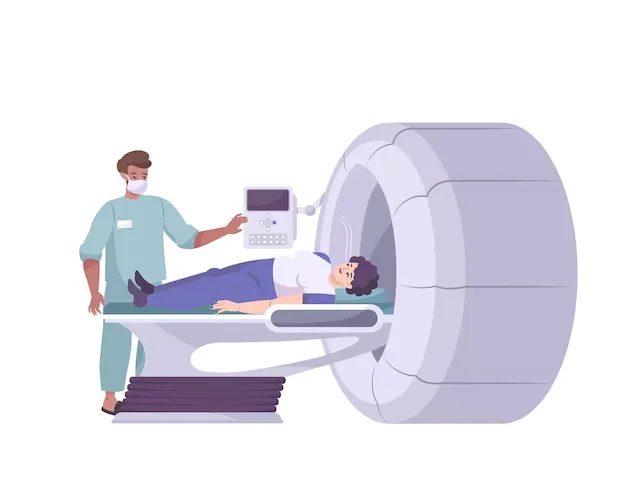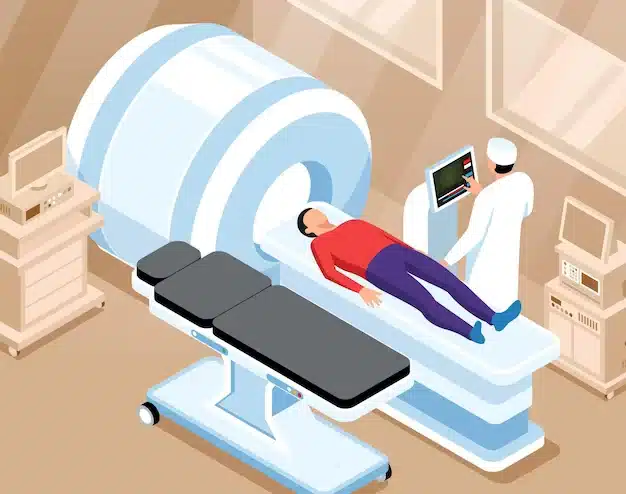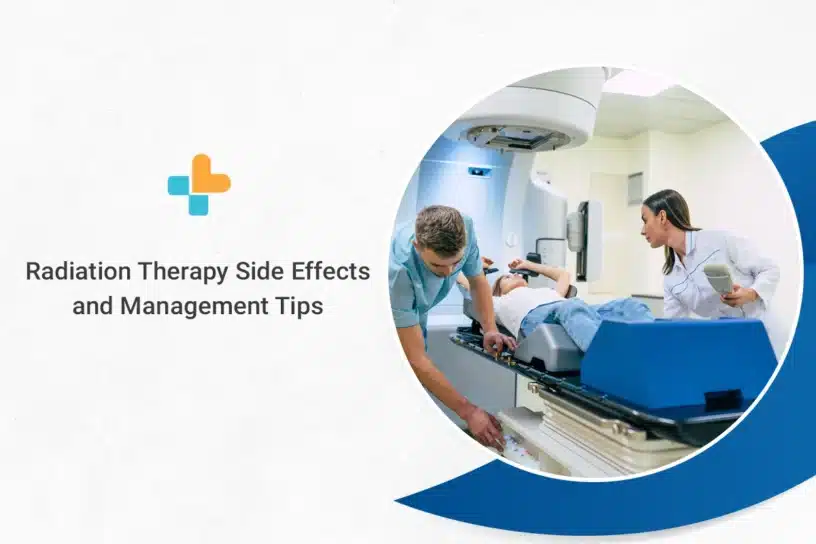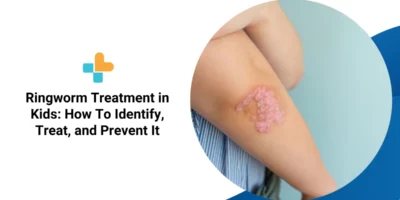Cancer is one of the most common life-threatening diseases, affecting thousands of people globally. Most cancers, when detected early, can be treated successfully, with good prognosis. There are various treatments that may be used to treat cancer, such as chemotherapy, radiation therapy, immunotherapy, etc. Radiation therapy is a type of treatment that can help in treating several cancers. It is one of the most commonly prescribed cancer treatments. This treatment approach works by shrinking or destroying cancer cells and tumors. Just like any other treatment, radiation therapy also produces certain side effects. The severity and occurrence of radiation therapy can significantly vary from one patient to another.

One of the very common side effects of radiation therapy is fatigue. Most people are likely to feel tired and weak after getting radiation therapy. There are various other radiation therapy side effects too. These radiation therapy side effects can differ depending on the body part being treated.
What is radiation therapy?
Radiation therapy, otherwise also known as radiotherapy, is a type of treatment for cancer that uses high levels of radiation to eliminate cancer by destroying the cancer cells or shrinking the size of the tumor. It is a widely used cancer treatment. Radiation therapy is of two types, and depending on the patient’s condition, the doctor will provide any one of the radiation therapies. The two types of radiation therapy include, external beam radiation therapy (EBRT) and internal radiation therapy.
Different areas treated with radiation therapy and the possible side effects
The radiation therapy side effects can vary depending upon the body part the therapy is given. Some of the areas of the body treated with radiation therapy and their possible side effects may include the following,
| Body part treated with radiation therapy. | Possible side effect |
| Brain | Fatigue, headache, hair loss, hearing loss, scalp changes, memory problems, nausea, and vomiting. |
| Breast | Skin irritation, fatigue, hair loss, sore breasts, swelling, skin dryness, and changes in color. |
| Head and neck | Mouth sores, difficulty in swallowing, ear pain, taste changes, stiffness in the jaw, dry mouth, swollen gums and neck, hair loss, tooth decay, fatigue, and changes in skin texture. |
| Abdomen (belly) | Fatigue, hair loss, stomach cramps, bladder issues, constipation, diarrhea, nausea, and vomiting. |
| Pelvis | Bladder issues (blood in urine, trouble urination, pain while peeing, frequent urge to pee, etc.), fertility problems, sexual issues, hair loss, diarrhea, fatigue, skin changes, nausea, and vomiting. |
| Rectum | Sexual problems in both men and women, bladder and urine problems, diarrhea, fatigue, hair loss, and changes in the skin. |
| Chest | Loss of appetite, fatigue, cough, sore throat, trouble swallowing, hair loss, fatigue, shortness of breath, and changes in the skin. |
In most instances, the healthy cells that are affected due to radiation therapy recover in a few months after the treatment is completed. However, in some cases, the radiation therapy side effects may not improve and stay for a longer time. In certain instances, the radiation therapy patient may show late effects, whereas the radiation therapy side effects may appear years after the treatment is done.
Since every patient is different and their side effects may also vary, it is best to ask your doctor about the short-term, long term and late side effects of radiation therapy you are likely to experience.
Why does radiation therapy cause side effects?
Radiation therapy is a treatment that affects both cancerous cells and healthy cells in the body. When radiation therapy is given to destroy cancer cells, healthy cells also are destroyed during the process. This eventually leads to radiation therapy side effects. In most instances, healthy cells recover in a few months after the radiation therapy is over when compared to cancer cells. However, the patient may still experience temporary or long-term, or late side effects of radiation therapy.
How long do the side effects from radiation therapy last?
The duration of side effects can vary from person to person. Some side effects, such as skin irritation, may resolve within a few weeks after treatment completion. Other side effects, such as fatigue, may persist for several weeks or even months. It is essential to consult with your healthcare team to understand what to expect and how to manage any lingering side effects.

In certain cases, the radiation therapy side effects may go away in a few weeks to a few months after completing the treatment course. Some patients may also experience side effects from radiation therapy for a long time. Late side effects may be over after several months or years after the treatment ends.
Why do you feel fatigued from radiation therapy, and how can you handle it?
Fatigue is one of the most common radiation therapy side effects. Various factors, such as radiation therapy, the patient’s response to treatment, and emotional stress, can cause fatigue. Fatigue, characterized by physical, mental, and emotional tiredness, is a common experience for individuals undergoing cancer treatment, including radiation therapy.
Fatigue often starts a few weeks after radiation therapy as a result of the treatment’s impact on both cancerous and healthy cells. Unlike regular fatigue in everyday life, the fatigue associated with radiation therapy may not improve with rest and can persist for an extended period, affecting one’s usual activities. However, it is important to note that this fatigue typically diminishes over time after the completion of treatment.
To manage fatigue, you can follow the below-mentioned tips,
- Rest whenever you feel exhausted
- Eat a healthy diet
- Drink lots of water and other liquids to stay hydrated
- Seek emotional support
- Ask help from someone to get your work, such as cooking, done
- Include mild physical activity daily
How to manage radiation therapy side effects?
While side effects from radiation therapy are difficult to prevent, there are various measures one can take to manage and relieve these radiation therapy side effects. Some of these radiation therapy side effects management tips include the following,
- Seeking support and help from others when feeling fatigued
- Taking a proper sleep at night
- Avoiding sleeping during the day to get a good night’s sleep. Taking small naps, if required, during the day
- Drinking enough water to stay hydrated
- Eating healthily and adding more protein to the diet. You can also seek help from a nutritionist
- Getting a little bit of physical activity done every day
- Practicing breathing exercises to relax. You can also try reading or listening to podcasts or music
- Wearing loose fitted and soft clothes to avoid irritation on the area treated
- Avoiding scratching, scrubbing, or shaving the treated area until advised by a doctor
- Wearing clothes that protect the treated skin from sun exposure
- Seeking doctor’s approval before using perfume, lotion, ointments, creams, or any home remedies on the radiation treated skin
Conclusion
Radiation therapy is an effective cancer treatment prescribed for various cancers. However, just like any other treatment approach, radiation therapy also produces certain side effects. Radiation therapy side effects, their occurrence, and severity may vary from one patient to another. In most cases, the radiation therapy side effects get better with time. There are various ways through which one can manage radiation therapy side effects. As a patient undergoing radiation therapy, it is advised to ask your doctor about any concerns that you may have regarding radiation therapy side effects. Your doctor will not only inform you about the possible radiation therapy side effects but will also help you in managing them.
At Ayu Health Network of Hospitals, our team of exceptional oncologists provides the best treatments for cancer, including radiation therapy, ensuring comprehensive and effective patient care. Our team of doctors and staff is dedicated to providing effective management for the side effects of radiation therapy, all while ensuring affordability and accessibility to high-quality care. To know more contact us at 6366 100 800.
Our Hospital Locations
General Surgery Hospitals in Chandigarh | General Surgery Hospitals in Bangalore | General Surgery Hospitals in Jaipur | General Surgery Hospitals in NCR | General Surgery Hospitals in Hyderabad
Our Doctors
General Surgery Doctors in Chandigarh | General Surgery Doctors in Bangalore | General Surgery Doctors in Jaipur | General Surgery Doctors in NCR | General Surgery Doctors in Hyderabad
About the Author

Dr. S. Goel
Dr. S. Goel is a renowned Internal Medicine Specialist currently practicing at Ayu Health, Bangalore. He is a Specialist in Internal Medicine, Diabetes HTN, Paediatric Care, and Family Medicine.




